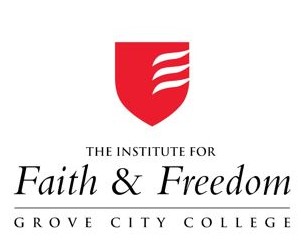Delivering Real Help, Not Hurt, for the Holidays
As this joyous holiday season builds toward its annual climax, nearly all decent people feel a powerful urge to serve the hopeless and the homeless who huddle in the shadows of every major city. But what if our instinct to demonstrate compassion results in more harm than help?
That question arises with special force this year after international publicity for a touching photo of a kindly New York City police officer kneeling on the sidewalk beside a barefoot beggar to assist him in putting on a pair of donated boots. On the bitterly cold night of Nov. 14, police officer Larry DePrimo, 25, took pity on Jeffrey Hillman, a ragged, emaciated figure with blistered and battered feet, sprawled on the pavement near Times Square. Using his own money, the guardian angel purchased heavy-duty socks and new all-weather boots, investing nearly $100. The grateful recipient said he “never had a pair of shoes,” and numerous media figures used the story to illustrate the way a single generous gesture could change the course of even the most blighted life.
Within two weeks, however, reporters spotted Hillman in another Manhattan neighborhood and, once again, walking barefoot in near freezing weather. When asked about the expensive boots he had received with so much fanfare, Hillman, 54, said that “those shoes are hidden. They are worth a lot of money. I could lose my life.”
A few days later, new information emerged to provide a more complete perspective on what had been hailed as the feel-good story of the Christmas season. Despite Hillman’s presumed homeless status, he has an apartment in the Bronx through a combination of federal rent vouchers, Social Security disability payments and veterans’ benefits. He nonetheless prefers to roam the streets as a panhandler. Despite his claim to DePrimo that he never before owned footwear, a woman stepped forward to recall that she had given him a nice pair of shoes only a year ago. The news media also discovered Hillman’s “loving, supportive family in Nazareth, Pa.,” reporting that he regularly turned down their offers of help.
These revelations in no way diminish the essential nobility of officer DePrimo’s big-hearted decision to help a stranger in apparent distress. But they do raise serious questions about the impact of that course of action on its intended beneficiary.
Those famous boots did nothing to spark redemption or renewal for the stricken soul who might have worn them for only a day or two before assigning the treasures to an unspecified hiding place and returning to his unshod and freezing voluntary wanderings.
Like the prior gift of shoes, like spare change provided to panhandlers every day by well-meaning passersby, like blankets, food and other supplies handed out to transients in every city in the country, unconditional giving to street people only makes it easier for them to survive on the streets. Rather than providing an impetus for constructive change, placing money in the paper cups of sidewalk beggars only encourages their ongoing pattern of self-destructive behavior.
Such displays of drive-by compassion might make the giver feel good, but they rarely bring good long-term results for the afflicted, many of whom suffer from addiction or mental illness. It’s far better to place money in the famous red kettle of the Salvation Army or send donations to other organizations with admirable track records of transforming lives.
Even the most broken and battered individuals can, of course, make fresh starts and recover from their troubles, but the healing process only becomes harder if they persist in sleeping on sidewalks, in parks or under freeways. For people like Hillman, the most urgent need involves helping him overcome the demons that drive him from the shelter of his government-provided apartment and the loving arms of his family, not getting donations that allow temporary comfort from the cold as he continues to suffer on the streets.
The intensified impulse to help the less fortunate remains one of the enduring glories of the season, but it should be channeled toward delivering long-term benefits, not just immediate relief for the guilt feelings of the giver. This means donations to organizations and institutions, not to unknown individuals, a stress on comprehensive healing rather than short-term comfort, and a deeper focus on encouraging revival, and not mere survival.
This column appeared originally in USA TODAY.




















